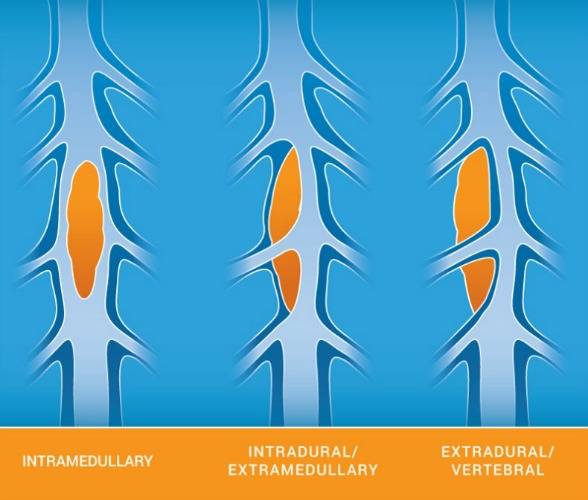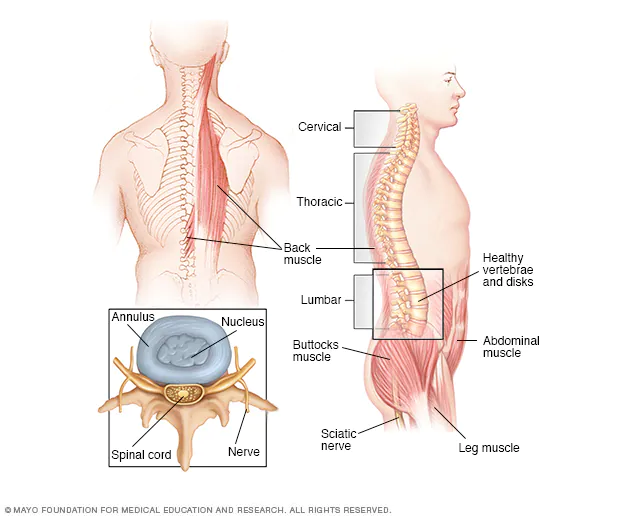IDEM / Intramedullary / Vertebral body Tumours
IDEM
Intradural extramedullary (IDEM) tumors account for two thirds of all primary intraspinal neoplasms and these include schwannomas & meningiomas.

Intramedullary Tumours
Common spinal intramedullary tumours are ependymoma, astrocytoma, hemangioblastoma & glioblastoma multiform. Although surgical concepts for the treatment of spinal intramedullary tumors have been established and refined over the last century, surgery for spinal intramedullary tumors remains one of the major challenges for neurosurgeons, due to their relative infrequency, unknown natural history, and surgical difficulty. Developments in microsurgical instruments, medical equipments, and neurophysiological monitoring techniques have contributed to the safety and precision of surgery.
Although a significant risk of functional deterioration after surgery exists, the probability of good functional survival needs to be pursued using careful, meticulous surgical techniques with the intent of microsurgical removal of the tumor. We remain convinced that safe and precise resection of spinal intramedullary tumors, and encapsulated benign tumors in particular, offers the promise of preserved function after surgery.
Vertebral body Tumours
A vertebral tumor is a type of spinal tumor affecting the bones or vertebrae of the spine. Spinal tumors that begin within the spinal cord or the covering of the spinal cord (dura) are called spinal cord tumors.
Tumors that affect the vertebrae have often spread (metastasized) from cancers in other parts of the body. But there are some types of tumors that start within the bones of the spine, such as chordoma, chondrosarcoma, osteosarcoma, plasmacytoma and Ewing’s sarcoma.
A vertebral tumor can affect neurological function by pushing on the spinal cord or nerve roots nearby. As these tumors grow within the bone, they may also cause pain, vertebral fractures or spinal instability

Whether cancerous or not, a vertebral tumor can be life-threatening and cause permanent disability. There are many treatment options for vertebral tumors, including surgery, radiation therapy, chemotherapy, medications or sometimes just monitoring the tumor.
Symptoms
Vertebral tumors can cause different signs and symptoms, especially as tumors grow. The tumors may affect your spinal cord or the nerve roots, blood vessels, or bones of your spine. Vertebral tumor signs and symptoms may include:
- Pain at the site of the tumor due to tumor growth
- Back pain, often radiating to other parts of your body
- Back pain that’s worse at night
- Loss of sensation or muscle weakness, especially in your arms or legs
- Difficulty walking, sometimes leading to falls
- Feeling less sensitive to cold, heat and pain
- Loss of bowel or bladder function
- Paralysis, which may be mild or severe, and can strike in different areas throughout the body
Looking for Neuro
Surgeon?
Simply give us a call and book an appointment for yourself. We are here to help. Walk into our Hospital and let us take a closer look to suggest the best treatment you need.
